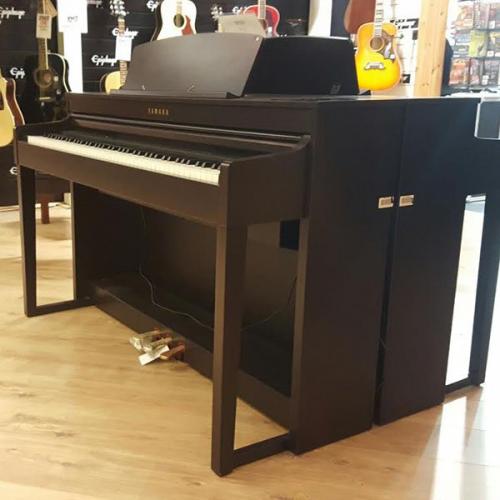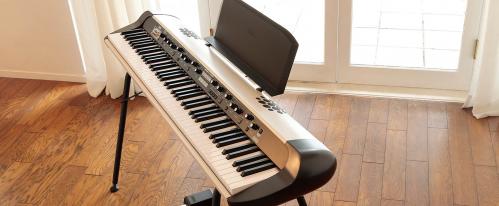Choosing your first digital piano or keyboard is kind of a big deal. No matter if you're dreaming of playing masterful movie scores like Ludovico Einaudi or jamming out to soulful pop hits like Alicia Keys, this is where your musical journey officially begins.
But with so many options out there, finding the one that does everything you need can feel as daunting as your first live performance! Don’t worry though, we’ve got you covered right here at PMT.
We’ve put together a list of the 10 best digital pianos and keyboards for beginners in 2024 to make things a little easier. Plus, we’ll give you a few pointers on the features that are worth looking out for to make sure the one you choose hits all the right notes.
What to look for in a beginner digital piano or keyboard
Choosing the right digital piano or keyboard can make all the difference in your learning experience. After all, not many musicians start out with the skill or dexterity of Beethoven.
Learning the basics of piano can feel frustrating at times, but picking out the best digital piano for beginners can help solidify your passion and make it easier to build on what you’ve already learned as you go. Here’s what you’ll need to keep an eye out for:
Weighted keys - If you want that authentic piano feel, go for weighted keys. They replicate the resistance of an acoustic piano, which means you’ll develop the finger strength and technique you’ll need to switch to a ‘proper’ piano as you progress. Essentially, it’s like having the soul of a grand piano in a more compact form.
Size - While an 88-key keyboard gives you the full range of a traditional piano, a 61-key keyboard can be a great place to start if you’re tight on space or budget. You can still play a wide range of music on a smaller keyboard and have plenty of fun doing it!
Think about your budget - Digital pianos and keyboards come in all price ranges, even at the beginner end of the spectrum. Set a budget that works for you, but remember that sometimes investing a bit more will get you features that’ll make learning easier, more enjoyable and allow more creative freedom. Think of it as investing in your musical future.
Portability - If you plan to take your keyboard to lessons, friends' houses, gigs, or anywhere on the road, consider how portable it is. Many portable keyboard models are lightweight and can be powered with batteries.
Touch sensitivity - One thing you’ll discover as you become a better musician is that how you play is equally important as what you play. Touch-sensitive keys respond to how hard or soft you play, which is what gives expression and dynamics to your music. This feature is essential for developing your musicality and making your playing more emotive.
Beyond the list of features you should be thinking about when shopping for your first digital piano or keyboard, the instrument you choose should excite you every time you sit down to play. So, with that in mind, let’s run through our top picks that are designed to do just that!
The 10 best digital pianos & keyboards for beginners
Roland GO:KEYS-3 digital keyboard
Perfect for beginners, the Roland GO:KEYS-3 offers over 1,000 sounds from Roland's legendary library to fuel your creativity. You’ll also be able to create melodies or practise your arpeggios over backing tracks and remix sounds on the fly, which should get your creative juices flowing pretty early.
We love the turquoise, dark red and midnight blue colour options too – why should keyboards be black or white?
Yamaha PSR-E283 portable keyboard
With 410 high-quality voices and 150 auto accompaniment styles, you can’t go wrong with the Yamaha PSR-E283 if you’re just starting out.
Though it’s a compact keyboard with 61 keys, it more than makes up for a few missing keys with the addition of both Lesson and Smart Chord functions. Plus, it runs on AA batteries which makes it just about as portable as it gets!
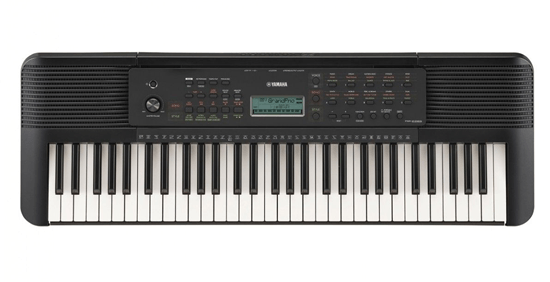

Korg Liano lightweight piano
If you want the sounds of a finely tuned Italian concert grand piano without giving up your living room to accommodate it, look no further than the Korg Liano. At just 6.2kg, it’s incredibly portable, yet still offers a studio-grade soft-touch keyboard for the most realistic playing experience.
With the full 88 keys and eight high-quality sounds, including acoustic and electric pianos, organs, and strings, not to mention onboard effects like reverb and chorus, it’s impressively versatile!
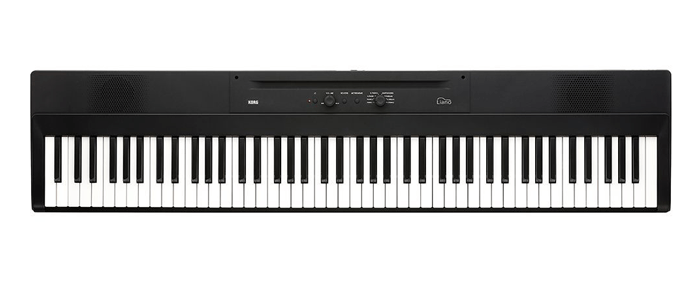

Yamaha PSR-EZ-310 keyboard
If you’re after a bit more range right from the get-go, the Yamaha PSR-EZ-310 is ideal. With 76 keys, the 310 sits comfortably between full-size and the more compact offerings out there. The keys are touch-sensitive as well, which is perfect for really nailing dynamics and evoking emotion in your playing.
If your taste in music is as eclectic – some might say ‘random’ – as ours, you’ll love the Auto Accompaniment function. It offers backing for a whole range of genres including R&B, jazz and Latin, so you can really get a feel for phrasing and tonality when working on improvisation skills.
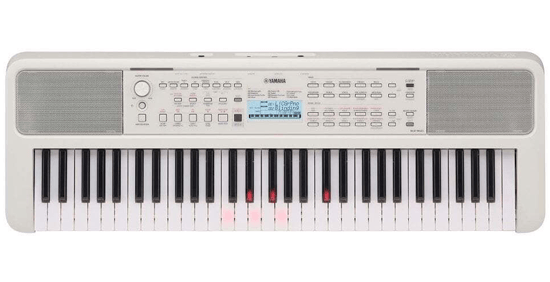

Yamaha P-145
The Yamaha P-145 is a solid choice if you’re after something that feels like an acoustic piano but with the benefits of digital. It features Yamaha’s GHC (Graded Hammer Compact) keyboard for an authentic playing experience and its compact design means it fits into just about any space.
While it may look a tad more minimalist than other options on our list, the realistic feel is certainly worth forgoing a few bells and whistles you’re unlikely to use early in your journey. Even so, you can still switch between an array of voices including strings, accordion, harpsichord, and yes, grand piano.
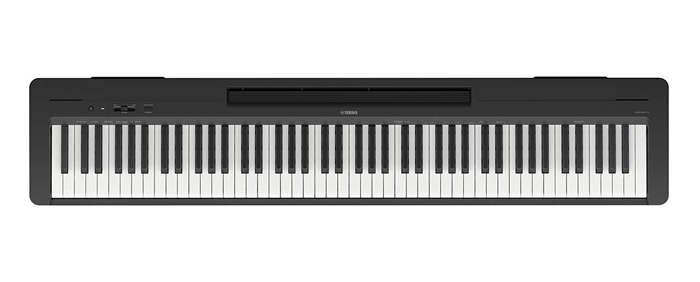

Alesis Concert 88-Key Semi-Weighted digital piano
If you're looking for an affordable yet impressive digital piano, the Alesis Concert ticks both boxes. With 88 full-sized, semi-weighted keys and a touch response you can tweak, it offers a playing experience that defies its price point and rivals much more expensive digital pianos.
Plus, with 10 premium voices and powerful 20-watt speakers built in, you won’t be in any rush to upgrade anytime soon.
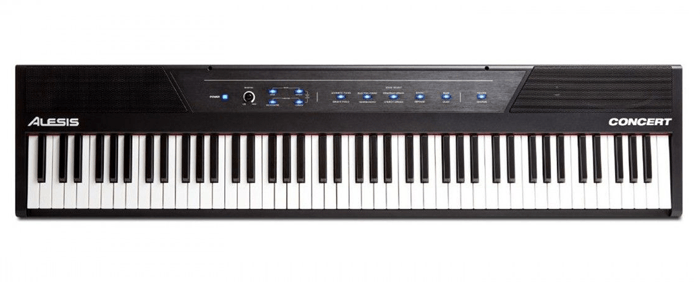

Alesis Recital Pro 88 Note digital piano
The Alesis Recital Pro is perfect for new starters looking to invest in a piano that offers room to grow. With its 88 full-sized hammer-action keys, the Recital Pro is all about emulating that grand piano feel.
The onboard "Learn Mode" is especially handy when practising alongside your tutor, and the sheer variety of voices and adjustable effects like reverb and chorus add layer upon layer of versatility.
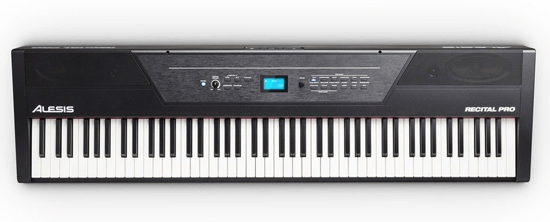

Casio CDP-S110 digital piano
Let’s face it, you’re probably not going to drop thousands of pounds on a grand piano if you don’t know how to play yet. But for under £300, few come as close to emulating the real thing as the Casio CDP-S110.
With 88 fully weighted, touch-sensitive keys, switching between this keyboard and a traditional piano is less of a jump than it appears. Plus, the Chordana Play app is a handy bonus if you’re beginning to learn your way around the keys.


Casio CT-S500C5 performance keyboard
If you can’t wait to dive deep into different sounds and styles, the Casio CT-S500C5 is a great pick. With 800 high-quality tones and over 240 auto accompaniments, there are endless possibilities and opportunities to experiment.
It also has those much-loved touch-sensitive keys for realistic playing, while the control knobs and pitch bend wheel let you tweak your sound as you play. Plus, with Bluetooth audio streaming and wireless MIDI, you can easily jam along to your favourite tracks or record straight into whatever audio software you use!
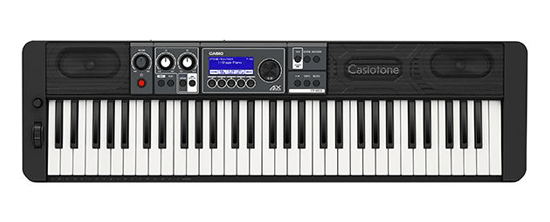

Forte DSP100 Black Stage Piano
If you’re thinking about going for a digital piano that feels great to play and has everything you need right there, the Forte DSP100 may just be the one. With 88 semi-weighted keys that offer a natural, responsive touch, it feels almost as if Forte has designed the keyboard to get you thinking seriously about your playing right from the get-go.
It also comes loaded with over 300 sounds, giving you plenty of room to experiment as you hone into your style. Plus, it comes with a stand included, so you’re all set up right out of the box.
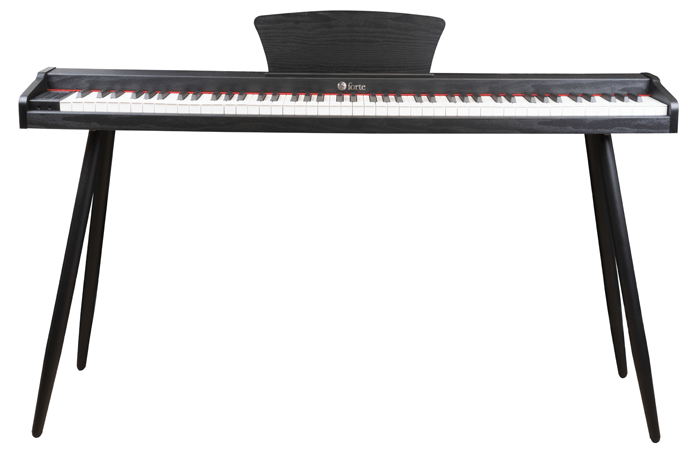

Beginner digital pianos & keyboards - FAQs
What’s the difference between a digital keyboard and a digital piano?
Digital keyboards and digital pianos both have their perks. Digital keyboards are usually more portable and versatile, with a wide range of sounds and built-in features like rhythms and accompaniment styles. They’re the best option if you want to explore different sounds or gain a feel for different genres.
Digital pianos are more focused on replicating the feel and sound of an acoustic piano, with weighted keys and high-quality piano sounds. If you’re serious about learning piano and want a more authentic playing experience, this is the route to choose.
What size keyboard is best for beginners?
For beginners, a keyboard with 61 keys is often all you need. Not to mention, it’s easier to handle and store. Having 61 keys should provide enough range for most beginner songs and exercises. However, if you have the space and budget, a keyboard with 76 or 88 keys offers a wider range and prepares you for playing a full-sized piano.
Can I learn to play piano on a 61 key keyboard?
Sure! A 61 key keyboard is a great starting point as it covers the essential range needed for most pieces and exercises. Yes, it doesn’t have the full range of an 88 key piano, but it’s more than enough to get you started and build a solid foundation.
Do beginners need an 88-key piano?
Not necessarily. While an 88-key piano offers the full range of notes found on an acoustic piano and is ideal for advanced pieces, it’s not essential when you’re starting out. Smaller keyboards are less intimidating and more affordable, making them perfect for those getting to grips with musicianship. As you get more comfortable, you can always choose to upgrade to an 88-key model to take the next step.






